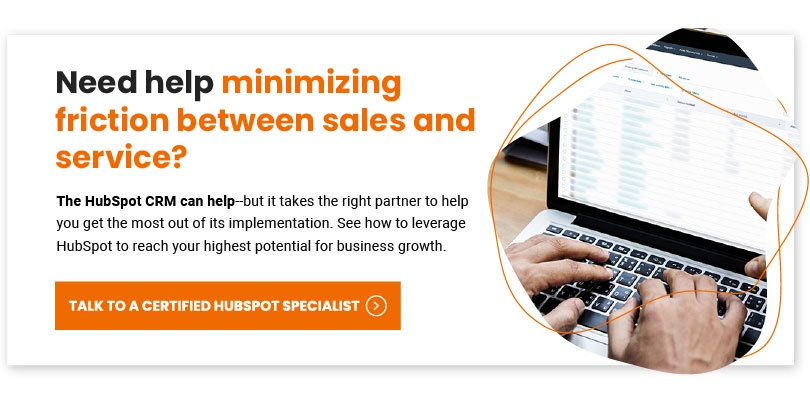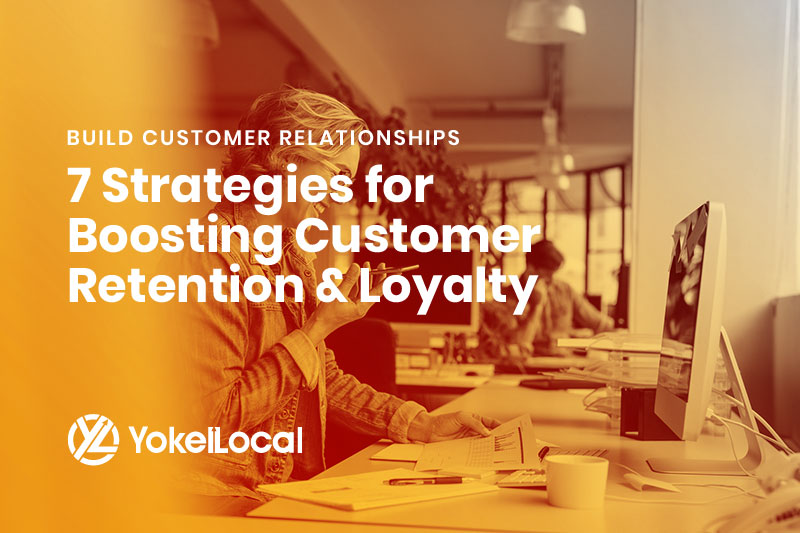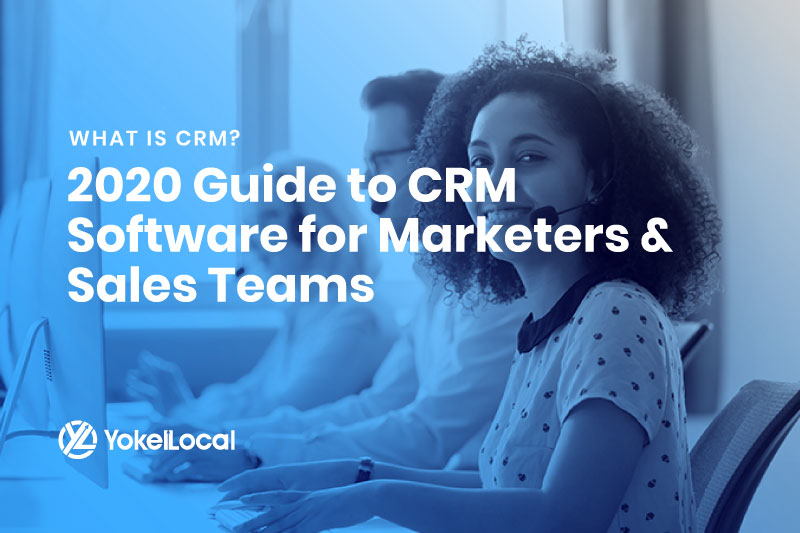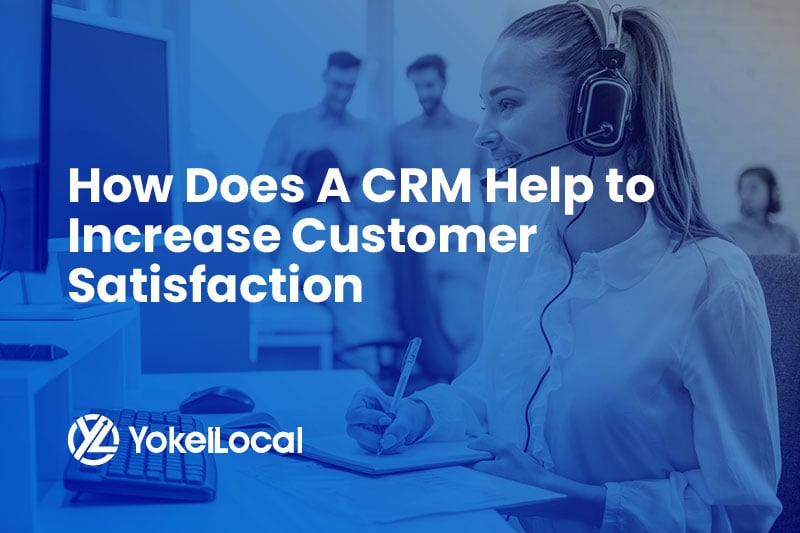If you are in sales, there’s a good chance that you are familiar with customer relationship management (CRM) and marketing automation. These are two powerful customer relationship technologies that can empower your business to better engage with your clients. The real challenge is to understand how these two work and if there is a need to combine them into one unified system. In this article, we will cover all things related to these technologies, including their main functionalities and the benefits of integrating them.
What is the Difference Between CRM & Marketing Automation?
Before we get too far into the discussion on how CRM and marketing automation can be used, let’s break down their main differences. Marketing automation is useful for generating leads from your marketing efforts; while CRM helps your sales team to develop those leads by using the information stored in the lead database.
Marketing automation is about the creation of leads, and CRM is more about retaining and transforming leads into customers.
What is Marketing Automation?
Marketing automation is about generating market-qualified leads (MQLs) that your sales team can further pursue. Marketing automation will help you track how customers navigate your website, what products gain the most interest, and it will send automated follow-up messages to customers. In fact, businesses that use marketing automation experience an average of 451% increase in qualified leads.
3 Reasons You Need Marketing Automation
Why is marketing automation indispensable to your organization? Here are 3 of the top reasons:
- Create better marketing campaigns. When you have a better understanding of your customers, you will be able to develop improved marketing campaigns that will better connect with your clientele.
- Establish better leads for your sales team. Poor quality leads are a waste of time and money. Marketing automation will help produce high-quality leads that will give your sales team a much better chance of increasing the bottom-line profits for your company.
- Better engagement with your customers. Marketing automation allows you to store critical information about your customers in a central place, making it easily accessible to your sales team. This allows your sales team to engage with potential clients in ways that will be most successful.
What is CRM?
CRM software is the platform that your sales team will use to improve their productivity and move closer to closing sales. CRM software can help your team transform leads into customers. It also streamlines managing and maintaining relationships with existing customers in your database. To give you an idea of CRM usage across businesses, 91% of companies with 10 or more employees have a CRM.
3 Reasons You Need a CRM
Is your organization using a CRM? If not, here are 3 reasons you should start using one now:
- Superior organization of your contacts. CRM is by far your best option for getting things in order with your contacts. You can classify customers based on their records and sort them in different ways for customized retrieval. For email campaigns, CRM is a lifesaver with these features.
- Various communication options. You can connect with your customers through several ways, including email, phone, IM, social media and forums. Your sales team can provide a level of convenience to its customers that will go a long way towards converting a lead into a sale.
- Workflow management to get the job done. With so many projects and schedules to manage, the CRM workflow management feature is a must-have for any sales team. A CRM can help your team better manage all the many deadlines, meetings, customer notes, and conference calls by using the task/workflow management features. It can provide reminders and automatic follow-up communication options that will make life a little easier.
Do I Need Both, CRM & Marketing Automation?
The short answer here is yes, using both CRM and marketing automation can have a huge impact on your business. As we noted earlier, both platforms come with different benefits. Combining these two tools is the sure-fire way to put your sales team in a position to succeed for the long term. Businesses that are looking for both types of tools could use HubSpot to boost their inbound marketing efforts. HubSpot has a free CRM with marketing automation capabilities that help businesses operate, collaborate, and grow better.
Why Integrate Marketing Automation with Your CRM?
Just to give you a little peace of mind as you consider marketing automation, nearly 90% of companies say their marketing automation strategy is successful. With that said, let’s break down the top reasons integrating marketing automation with your CRM can provide even more value to your business:
- Streamline your company’s sales efforts. By consolidating important activities and information, your sales and marketing team can prioritize their projects by putting their energy into high-quality leads.
- Increase your visibility. Getting your message out to your customers (both new and old) is crucial to the continued success of your company. Integrating marketing automation with your CRM allows you to ensure consistent and targeted messaging tactics to the various sets of customers within your database.
- Reintroduce existing customers to the purchasing cycle. When these two systems are working together, you can better understand the needs of your existing customers. This puts your sales team in a position to engage with these customers in ways that will introduce them to other products and services that your company has to offer.
- Maintain quality customer data. All of your sales goals heavily rely on the customer data that your company has gathered and stored over the years. If your e-mail list has unverified recipients who are no longer interested in these communications, end up being a waste of time. A unified system between your CRM and marketing automation will ensure that your messages are received and opened by potential customers.
- Improve your sales presentations. Setting up a meeting with a lead is just the first step. The sales presentation is the big moment where a lead is in position to transition into a customer. Integrating marketing automation and CRM will allow you to improve the level of personalization with each lead. For example, you can easily import demographic information (location, size, industry, etc.) into your marketing automation tool that can deliver customized messages to your audience.
How to Know When You’re Ready for One or Both Pieces of Martech Software?
If your business is continuing to grow year after year with a steadily increasing number of lead acquisitions and customers, then it’s time to get started with CRM and marketing automation. Most companies tend to start with a CRM system to get things rolling. Once is in place, developing and integrating marketing automation is the next logical step to unify your marketing efforts into one user-friendly platform for your team.
CRM and marketing automation are two of the most powerful marketing tools out there. Creating and delivering engaging content is the key to winning over your leads. You can surely find effective ways to achieve your sales goal with either of these platforms. And once you get both tools established, combining them into one unified platform will push your company forward into new levels of success.
Transform your digital presence with Yokel Local today! Discover tailored marketing strategies that drive real results. Contact Us Now and start growing your business online.














